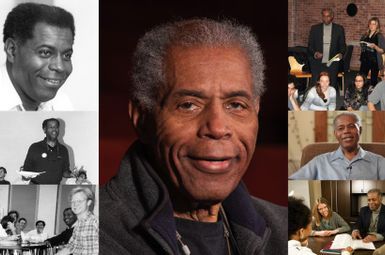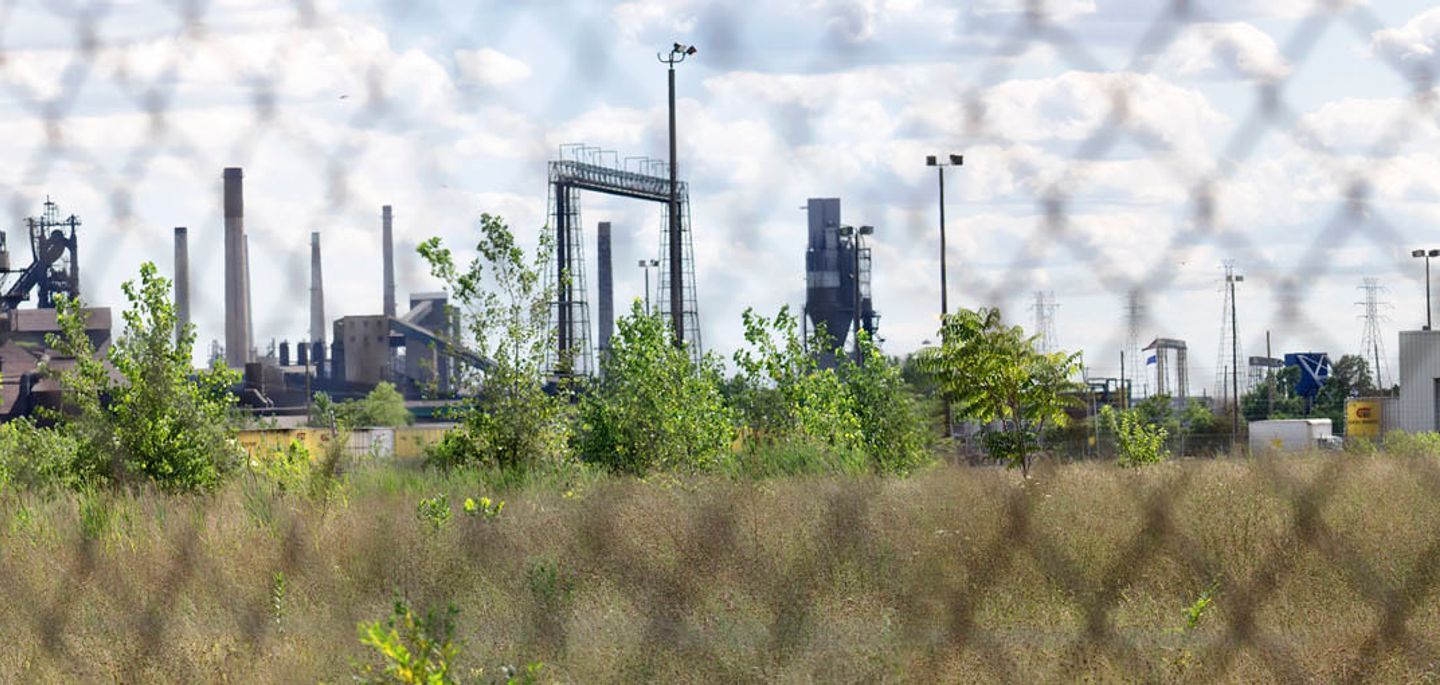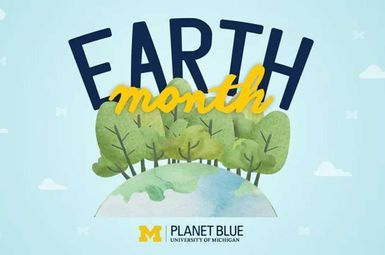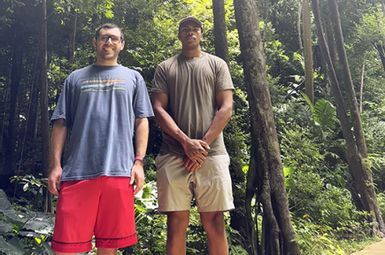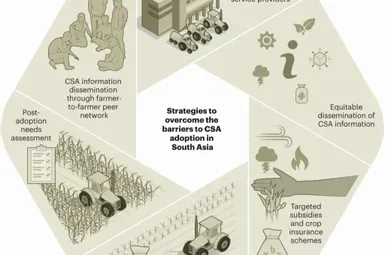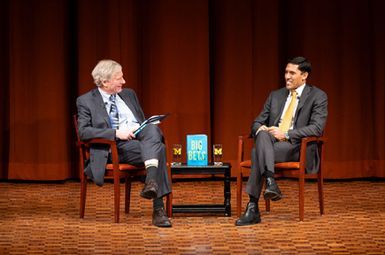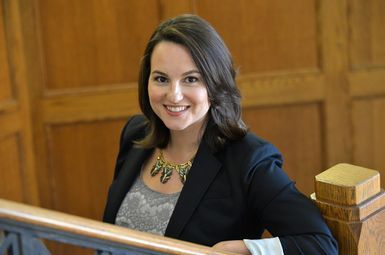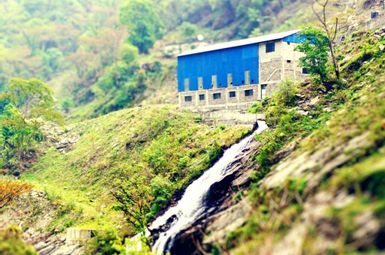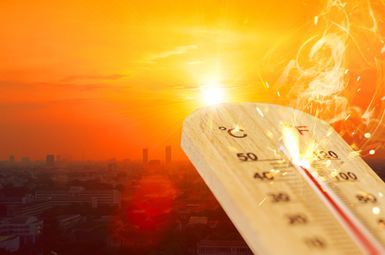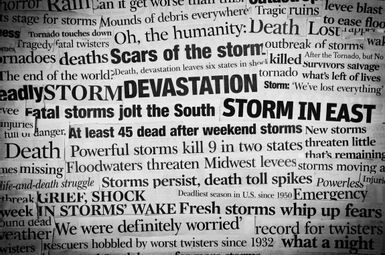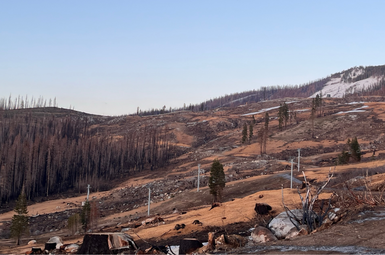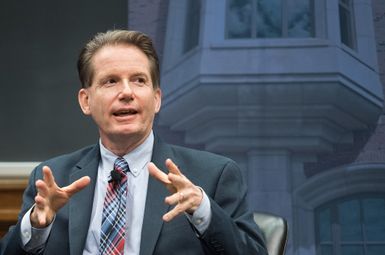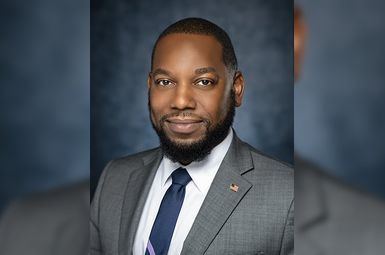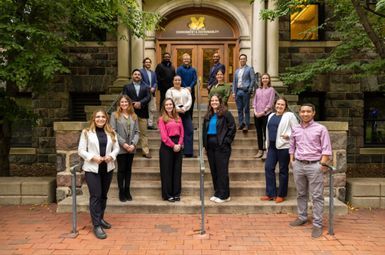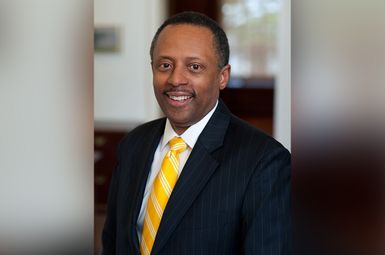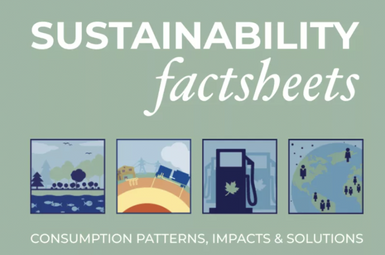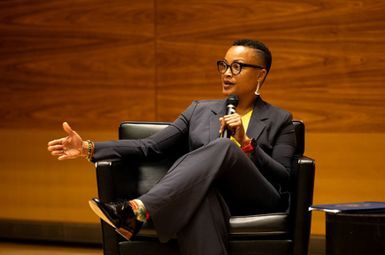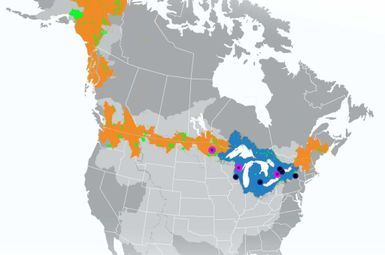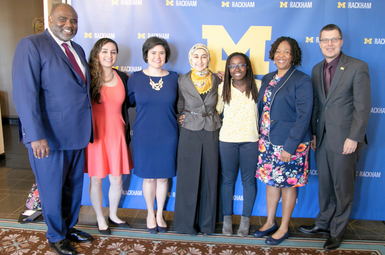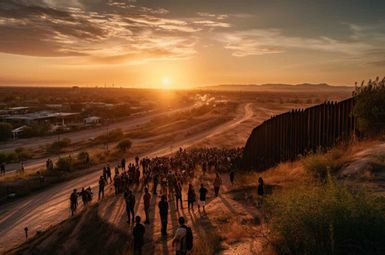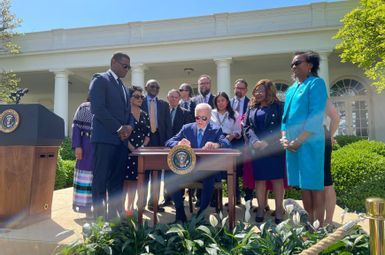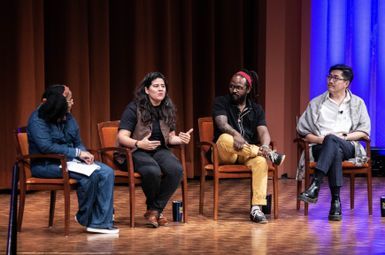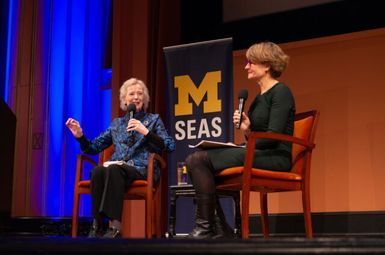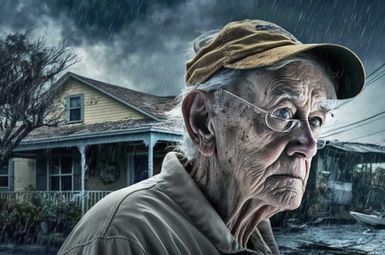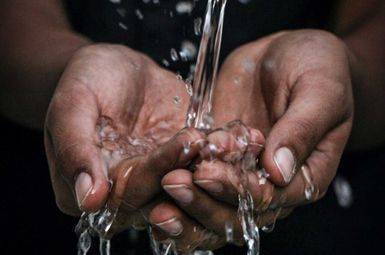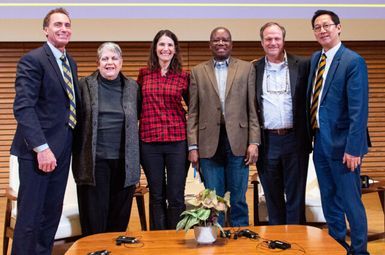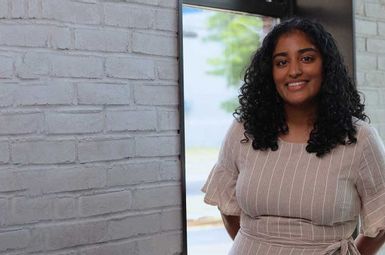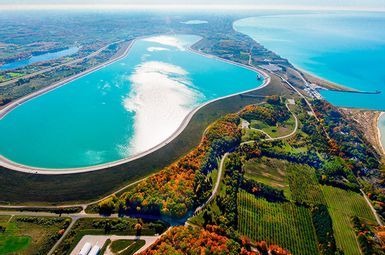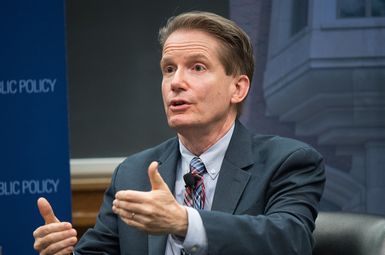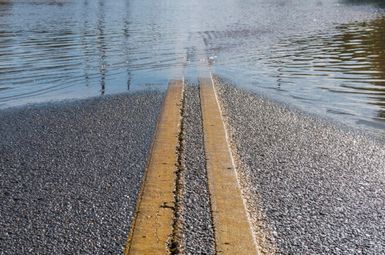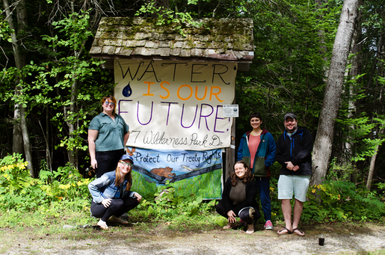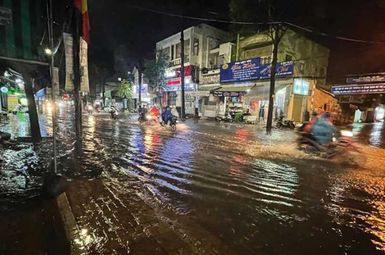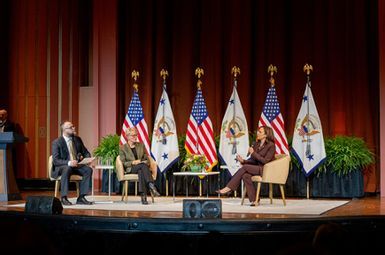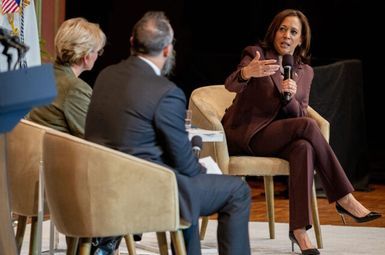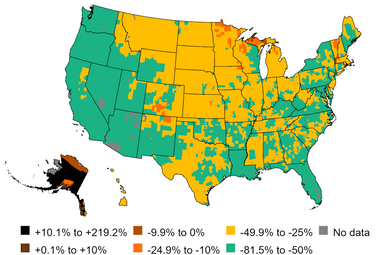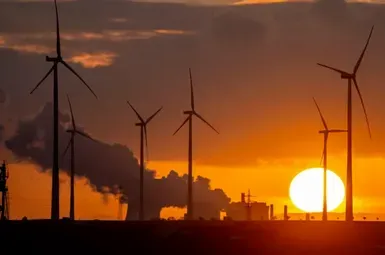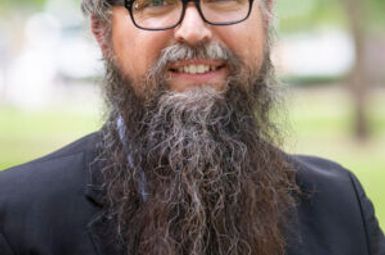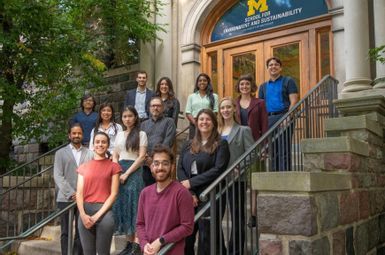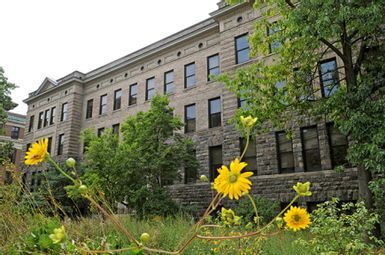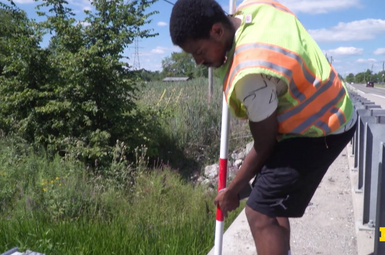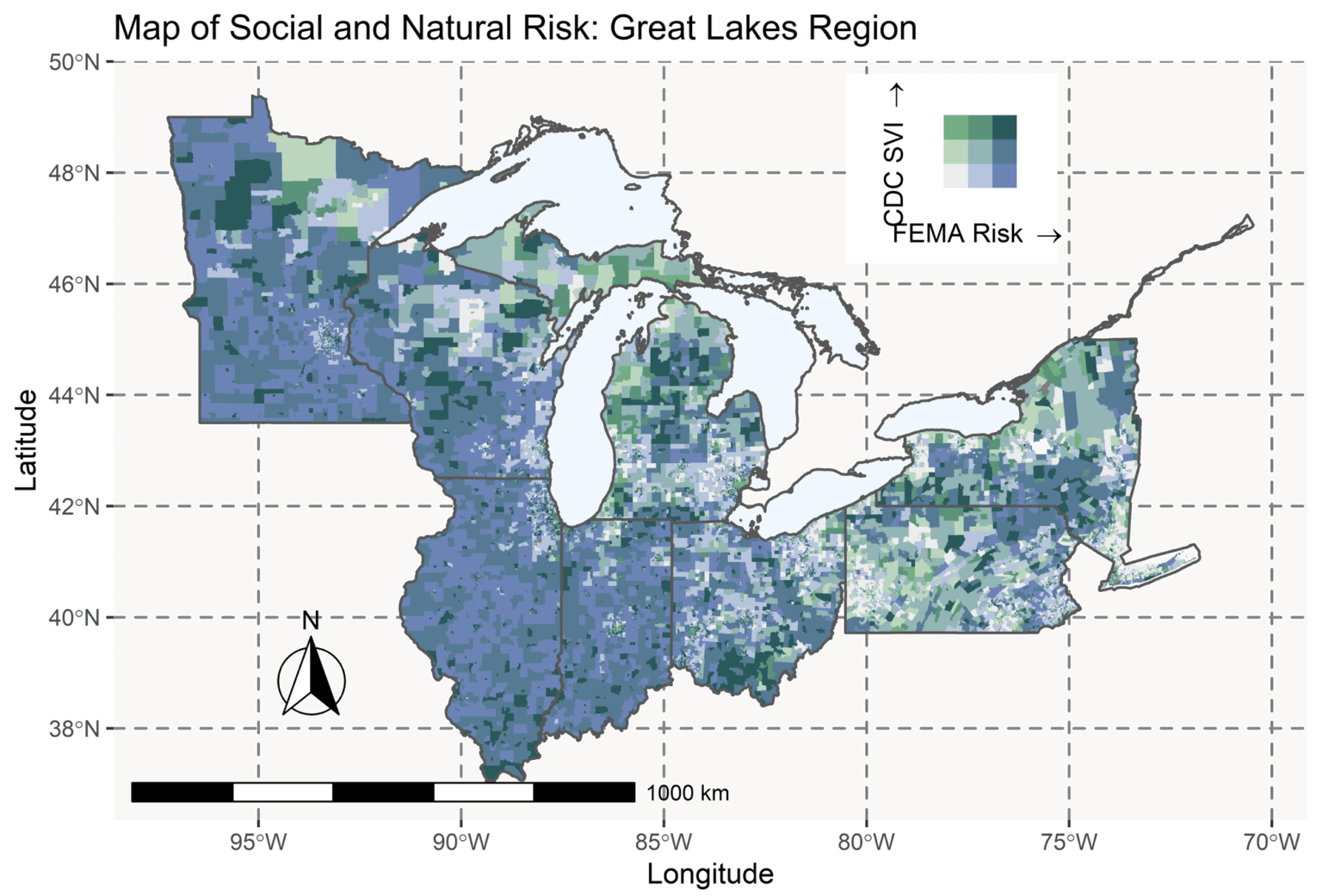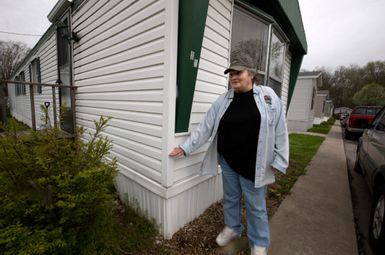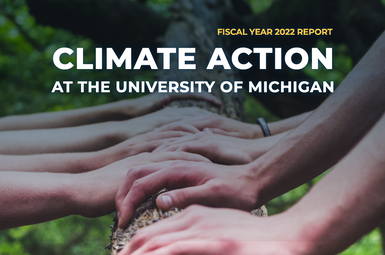The climate crisis will cause an additional 250 thousand deaths per year between 2030 and 2050. And though wealthier countries like the U.S. emit larger amounts of greenhouse gas per capita, developing nations are already burdened with the worse effects of climate change. Meanwhile, inadequate infrastructure in communities both near and far is making already disadvantaged communities more vulnerable. University of Michigan researchers are analyzing this unjust nexus from both technical and adaptive perspectives — charting new technologies that can help communities adapt and addressing underlying disparities.
In memoriam: Bunyan Bryant (1935–2024)
"For more than four decades, Bunyan taught and mentored SEAS students, modeling for them how to be effective advocates for equity and justice in communities that face environmental racism. Thanks to Bunyan’s tireless passion for creating change, his legacy as an environmental justice pioneer will live on in future generations of advocates.”
Earth Month puts focus on U-M sustainability efforts
U-M is marking late March and all of April with a series of events focused on sustainability and climate action, continuing a tradition that began with the first “Teach-In on the Environment” in 1970—which grew into what is now known as Earth Day.
Rajiv Shah: Making big bets to create impactful change
“Often we look at climate change or widespread human poverty or these deep inequities that hold so many communities back generation after generation, and we say to ourselves, these challenges are too complex. I’m just one person; what can I do to really make a difference?”
What's stopping U.S. climate policies from working effectively?
The United States recently passed major climate change laws, such as the Infrastructure Investment and Jobs Act (IIJA), the Inflation Reduction Act of 2022 (IRA), and the CHIPS and Science Act, which allocate funding with a goal of expanding energy-transition initiatives. Analysts suggest new investments could reduce greenhouse gas emissions by more than 40% below 2005 levels by 2030.
U-M ‘catalyst grants’ address climate resilience, sustainability
Four newly awarded sustainability “catalyst grants” at U-M are piloting innovative ways to bolster climate resilience and sustainability. Funded by the U-M Graham Sustainability Institute, these projects will explore renewable energy deployment in Nepal, climate justice in the Midwest, textile recycling innovation and equitable transportation planning.
2023 warmest year on record
"“And the warming will continue to accelerate until we halt the burning of fossil fuels. This means continued worsening extreme heat and heat waves, but also many other worsening climate extremes driven by warmer temperatures. More severe droughts, more intense rainfall, more devastating hurricanes and bigger, more widespread wildfires."
Climate disaster: When the smoke clears
Rackham student and sociologist Joyce Ho’s research seeks to understand homeowners’ experiences and insurance companies’ responses in the aftermath of forest fires in northern California.
Rabe comments on COP28 climate deal
At the COP28 climate summit in Dubai, nearly 200 nations approved a global pact that calls for transitioning away from fossil fuels—a first. The deal also calls for tripling the use of renewable energy, doubling energy efficiency and slashing methane emissions.
Associate Professor Tony Reames will return to SEAS after serving at the Department of Energy
Associate Professor Tony Reames will be returning to the University of Michigan School for Environment and Sustainability (SEAS) from his leave of absence at the Department of Energy (DOE), where he served as the Principal Deputy Director for State and Community Energy Programs and the DOE’s Deputy Director for Energy Justice. Reames will become the Tishman Professor of Environmental Justice at SEAS and serve as the new Director of the SEAS Detroit Sustainability Clinic, effective January 2024.
COP28 climate summit in Dubai: U-M student team attending
Sixteen U-M students and their faculty adviser will attend the two-week COP28 climate summit in Dubai, United Arab Emirates. The students will observe the negotiations, attend side events and interact with various experts. This year’s conference runs from Nov. 30 to Dec. 12. U-M has sent student delegations to U.N. climate change conferences since 2009.
Lewis on the future of climate resilience in “haven” cities
Ann Arbor and other cities across the Midwest and Northeast have been referred to by climate specialists as “climate havens,” natural areas of refuge that are relatively safe from extreme weather events such as intense heat and tropical storms.
Environmental Justice and DEI
The old adage “the end justifies the means” is one way to critically paraphrase the philosophical underpinnings of the early 20th century environmental conservation movement. Historically, conservation leaders have stolen land from Indigenous people, enacted eminent domain land grabs, and perpetrated other unjust actions in service of environmental conservation. Rackham alum Rebeca Villegas (M.S., M.U.R.P. ’20) is changing that harmful dynamic.
Information about climate-induced migration spurs negative attitudes about immigrants
Reading about climate-induced immigration prompted negative, nativist attitudes among people toward the affected migrants—an unintended, perhaps even paradoxical effect of many delivering the original messages, according to researchers at U-M and elsewhere. The findings, the researchers say, raise cautionary flags for reporters, advocates and other communicators in their work related to forced migration caused by global climate change.
SEAS Prof. Kyle Whyte contributes to historic executive order on environmental justice signed by Pres. Biden
President Biden signed a historic executive order called Revitalizing Our Nation’s Commitment to Environmental Justice for All, which will direct federal agencies to focus on confronting longstanding environmental injustices. Kyle Whyte, the George Willis Pack Professor at the U-M School for Environment and Sustainability (SEAS), a U.S. Science Envoy, and a member of the White House Environmental Justice Advisory Council, served as an advisor on the development of the executive order.
Earth Day event focused on ways to build a just future for all
Participating in our democracy, particularly locally, and organizing for systems and policy change to promote the collective good is critical to building a clean energy future that is just and works for all. This was the overall sentiment of a panel that brought together three community activists and organizers who have emerged as powerful leaders that work on pushing forward solutions that consider the rights of all people.
Wege lecturer Mary Robinson ties climate crisis to injustice
“We are on the cusp of a clean-energy world, which we should all be immensely excited about and look forward to. Yet, we have this strange paradox where our world continues to warm 2.4 degrees above pre-industrial levels, and we don’t talk about it."
Risk of death for people with dementia increases after a hurricane exposure
The risk of death rises among older adults with Alzheimer’s or other dementias in the months following exposure to a hurricane, a new U-M study shows. Their increased risk could be due to disruption of normal routine, such as access to caregiving, changes in living environment, loss in access to medications, and change in daily routines, said study first author Sue Anne Bell, assistant professor at the U-M School of Nursing.
How households adapt to water scarcity: New study sheds light on hidden costs of global Issue
As climate change and population growth make water scarcity increasingly common, a much larger share of the global population will be forced to reckon with the costs of urban water scarcity. A new study sheds light on how households bear the monetary and nonmonetary costs when water supply is intermittent, rather than continuous—with policy implications that could help make urban water safer, more sustainable and more equitable.
Panel offers multidisciplinary perspectives on climate crisis
Janet Napolitano, former UC president, U.S. secretary of homeland security and Arizona governor, joined U-M sustainability experts for a panel discussion on climate action. The discussion, entitled “Working Together to Tackle the Climate Crisis,” centered around mobilizing government, higher education, the private sector, community stakeholders and individuals toward addressing the climate crisis.
New Carbon Neutrality Acceleration Program projects receive over $1M in funding
The Graham Sustainability Institute’s Carbon Neutrality Acceleration Program (CNAP) announced $1,160,000 in funding for six new faculty research projects. They tackle a range of carbon neutrality topics and augment the CNAP portfolio, which addresses six critical technological and social decarbonization opportunities: energy storage; capturing, converting, and storing carbon; changing public opinion and behavior; ensuring an equitable and inclusive transition; material and process innovation; and transportation and alternative fuels.
Michigan sustainability case: A tale of two (polluted) cities
Classmates Cecilia Garibay and Dolores Migdalia Perales teamed up to develop the Michigan Sustainability Case, “A Tale of Two (Polluted) Cities: Latinx communities and their allies face air pollution in Southwest Detroit and Southwest Los Angeles.”
Collaborative project to help improve coastal community resilience in Michigan, Wisconsin
Michigan Sea Grant recently received $500,000 in funding to help improve resilience under future climate change scenarios in disadvantaged coastal communities in Michigan and Wisconsin. The project will assess flood risk for disadvantaged communities in Berrien County, Michigan, and Milwaukee, and will provide a framework to extend the analysis throughout the Great Lakes.
Yarina, B.S. Arch ’10, works with, not against, nature
“It’s quite exciting to observe something as it’s happening. Many local experts are advocating for the implementation of new ideas about living with nature, water management, and dealing with climate change by adapting agricultural practices and other kinds of infrastructure rather than fighting against it."
SEAS Professor Kyle Whyte moderates U-M talk with Vice President Kamala Harris
During a U-M visit to promote the Biden-Harris Administration’s efforts to address climate change—which include the passage of the Inflation Reduction Act, the Bipartisan Infrastructure Law and the CHIPS and Science Act—Vice President Kamala Harris told the packed crowd that “we are modeling some of the best of what innovation looks like at this moment.
EV transition will benefit most US vehicle owners, but lowest-income Americans could get left behind
More than 90% of vehicle-owning households in the United States would see a reduction in the percentage of income spent on transportation energy—the gasoline or electricity that powers their cars, SUVs and pickups—if they switched to electric vehicles. However, more than half of the lowest-income U.S. households (an estimated 8.3 million households) would continue to experience high transportation energy burdens, defined in this study as spending more than 4% of household income on filling the tank or charging up.
Climate crisis: 4 reasons for hope in 2023
"From my vantage point at a large public university, I know firsthand how activism and energy of students, with support from faculty and other university communities, has galvanized our institution to make real commitments and progress toward carbon neutrality."
Environmental justice expert selected as U-M’s first US Science Envoy by State Department
U-M environmental justice expert Kyle Whyte is one of seven distinguished scientists in the country named U.S. Science Envoys by the Department of State. Through the Science Envoy Program, eminent U.S. scientists and engineers travel to foreign countries as private citizens, leveraging their expertise and networks to forge connections and identify opportunities for sustained international cooperation.
U-M student delegates share takeaways from COP27
Since returning from COP27, the United Nations climate change conference, University of Michigan student delegates have been reflecting on their experiences. At the conclusion of COP, the Conference of the Parties agreed to establish loss and damage funding for vulnerable communities and recommitted to keeping the 1.5°C target goal alive through a new mitigation work program.
COP27 climate conference in Egypt: U-M experts available to discuss
Global climate talks in Egypt are heading into the home stretch with many issues still unresolved. Negotiators from nearly 200 countries have gathered in Sharm el-Sheikh for the COP27 conference in an effort to curb greenhouse gas emissions and avoid the worst ravages of climate change.
Creating equity in midwestern flood response and recovery
Flooding is the leading cause of property damage and deaths in the U.S. It’s bigger than earthquakes and forest fires put together. Branko Kerkez, an associate professor of civil and environmental engineering, and his students at the Digital Water Lab partnered with researchers at the U-M Center for Social Solutions to measure, better understand and prevent flooding and its aftermath in some of the most vulnerable communities.
When climate change hits home
Many small and mid-sized communities like Goshen, IN simply don’t have the resources to tackle a global crisis like climate change on their own. So in 2018, Goshen was one of 12 cities that partnered with Great Lakes Integrated Sciences and Assessments (GLISA), an organization led by U-M that’s working to help small and mid-sized cities plan for a future that will be shaped by a changing climate.
